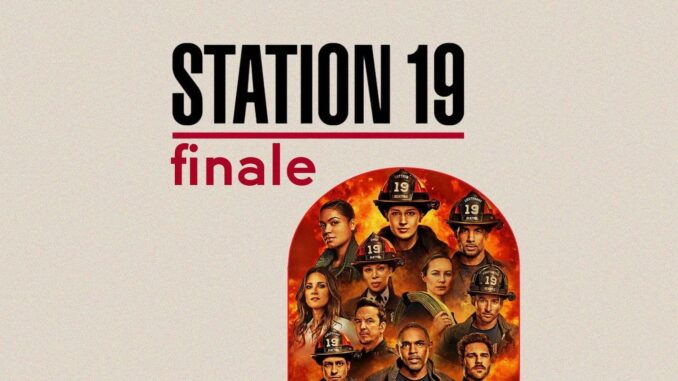
The siren’s wail, a sound synonymous with urgency and heroism, fades into a poignant echo. For seven seasons, it was the clarion call that summoned us to the heart of Firehouse 19, a place where adrenaline coursed as freely as loyalty and love. Now, as the embers cool on the final episode of Station 19, the siren doesn’t herald a new emergency, but rather the bittersweet farewell of a cast, a crew, and a fictional family that became profoundly real. The Season 7 finale wasn't just an ending; it was an emotional earthquake, a shared catharsis where the lines between character and actor, and audience and story, blurred into a single, tear-streaked canvas.
Imagine the set on those final days. The familiar clang of the firehouse pole, usually a burst of energy, might have resonated with a hollow ache. The gleam of polished brass, the neatly folded uniforms, the well-worn kitchen table where so many life-altering conversations unfolded – each object would have held the weight of a thousand memories. For the actors, portraying their characters for the very last time, the performances must have been imbued with an added layer of raw emotion. It wasn't just Andy Herrera facing a daunting future, or Maya Bishop navigating personal growth, or Ben Warren contemplating his next chapter; it was Jaina Lee Ortiz, Danielle Savre, and Jason George embodying these individuals with the knowledge that this was the definitive goodbye. A catch in a voice usually steady, a tremor in a hand that had often gripped a hose with iron resolve – these weren't just acting choices; they were the visceral expressions of real goodbyes.
The final "cut!" would have been more than a director's command; it would have been a punctuation mark on years of shared life. The ensuing moments, often captured in silent, knowing glances or choked-back tears, would paint a more vivid picture than any script could. Picture the circle of embraces, the lingering hugs that communicated a gratitude too profound for words. The cast, a family forged not by blood but by shared call times, grueling hours, and the intimate vulnerability of their craft, would have clutched at these final moments. These weren't just colleagues; they were confidantes, mentors, friends who had witnessed each other's triumphs and tribulations, both on-screen and off. Their collective "thank you" to each other, to the crew, to the visionaries behind the show, would carry the weight of an era concluding.
And then, there's the unseen but deeply felt farewell from the audience. For seven years, we've invited these firefighters into our homes, our hearts, and our Monday nights (or whenever we binged). We’ve cheered their victories, mourned their losses, and rooted for their messy, beautiful lives. The emotional impact of the finale reverberated through social media, a collective sigh of grief and gratitude. Fans shared their favorite moments, debated character arcs, and expressed the void left by the departure of these heroes. It wasn't just entertainment; it was a weekly touchstone, a source of inspiration, comfort, and sometimes, much-needed tears. To say goodbye is to acknowledge the end of a personal connection, a shared journey through the perilous and poignant landscape of Seattle's bravest.
The Station 19 finale, therefore, transcends the typical conclusion of a television series. It becomes an illustrative essay in the very nature of storytelling and community. It illustrates how fictional narratives can become cornerstones of our emotional lives, how actors become conduits for characters we come to adore, and how the act of watching can forge an invisible, powerful bond between creators and their audience. The final hose is coiled, the last alarm bell rings, and the firehouse lights dim. But the emotional imprint, the legacy of courage, vulnerability, and unwavering love for one another, will continue to burn brightly in the hearts of those who stood with Firehouse 19, right up until their final, heartfelt farewell.